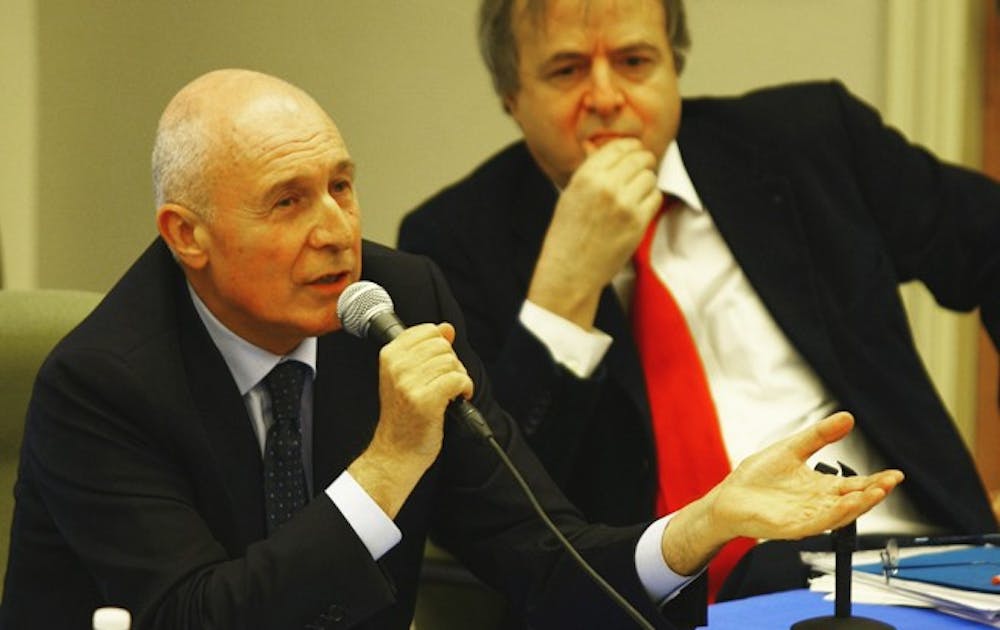Despite slow economic growth and poor government involvement, Italy’s economy still has a possibility for growth, a panel of financial experts said Monday afternoon.
The panel, headed by Provost Peter Lange, presented five different perspectives on the outlook of Italy’s economy and the euro. Although their points of view differed, each conveyed an overall concern for the current state of Italy. The event—“Too Big to Fail? Too Big to Bail? Italy, Europe and the Euro”—was sponsored by the Departments of Economics and Romance Studies and the Office of the Provost.
“For the scholarly community, Italy has been a kind of place that you have to look at as half full or half empty,” Lange said in reference to Italy’s current economy. “I think, to some degree, this has become increasingly resolved to the half empty.”
Panelist Gianni Toniolo, research professor of economics, was one of the few that still views Italy’s economy as being “half-full.” Toniolo noted that Italy’s current economic problems may not be caused by its sovereign debt. Instead, he credited “extremely sluggish” gross domestic product growth with the country’s financial decline.
“Italy is a historically high debt country,” Toniolo said.
He noted that despite many economic reforms made in the 1990’s, “old evils” such as corruption and slow development in the south still slow GDP growth. Toniolo insisted that Italy’s financial situation could still be saved with proper economic reform.
“I leave you here with this glimmer of hope,” he concluded.
Panelists Ronald Leven, a senior currency strategist at Morgan Stanley, and Luigi Zingales, professor at the University of Chicago Booth School of Business, criticized the Italian government for its handling of the economy.
“This is a political problem, not an economic problem,” Leven said. “Europe has become a segmented marketplace with capital getting stuck at every border.”
Though he emphasized that the long-term solution to the problem is not yet clear, he cited that a federalized bank with the power to support banks in every country that uses the euro would help unify capital markets throughout Europe.
“Italy’s problem cannot solely be solved by Italy. Europe is going to have to start treating these as European problems,” Leven said. “Otherwise the euro is doomed.”
Zingales said that the problems in Italy may continue to get worse as the current workforce reaches retirement age. He noted that the population is not increasing at a rate to replace workers as they leave the workforce, which will result in a “dramatic reduction in GDP.” Zingales added that the government will try to use immigrants to fill the vacant jobs and this will prompt “social tension.”
This “social tension” will resemble the current discontent that the Italian public feels regarding corruption in the banking system in Italy, which makes it very difficult to have large reliable banks, Zingales said.
“If you want to succeed in Italy, you don’t go to graduate school, you might not even go to university, you get to know people. You spend some time in Rome and make connections,” Zingales said, adding that the political system “prevents mobility” within the Italian economy.
Toniolo rebutted the blame of corruption in Italy.
“Of course we are corrupt,” he said. “But we are not as corrupt as we are perceived to be.”
Panelist Marco Magnani, head of the structural economic analysis department at Banca d’Italia, supported Zingales’ ideas about Italy’s economy being a political problem, although he noted that he views the situation as being “more optimistic than pessimistic.”
Get The Chronicle straight to your inbox
Signup for our weekly newsletter. Cancel at any time.

